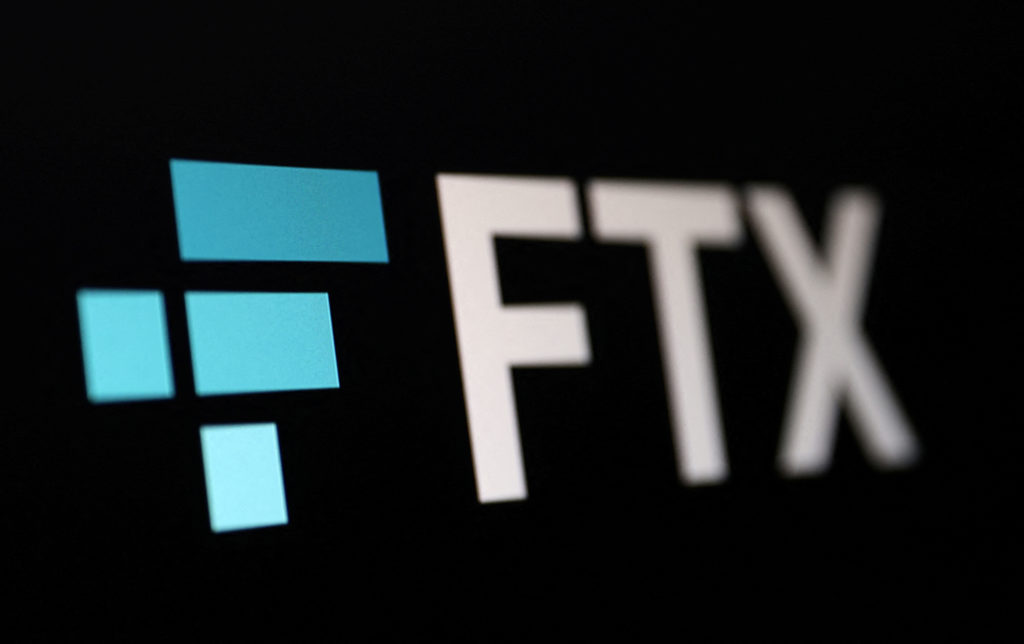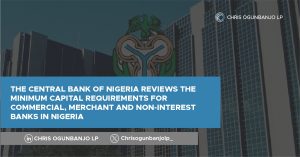The Binance-FTX Deal: What went wrong
At the very peak of its astronomic rise in the crypto world, FTX was the third largest cryptocurrency exchange in the world by trading volume, boasting of well over one million active users of its trading platform.[1] However, on November 9, 2022, cryptocurrency giant, Binance, walked away from what initially seemed to be a straightforward deal to acquire FTX and absorb its assets and liabilities, citing corporate due diligence reports which affirmed the poor health of FTX’s finances and volatile structure, as well as news reports regarding mishandled customer funds and alleged U.S. agency investigations as its particular reasons for unceremoniously pulling out of the said deal.[2]
The popular corporate saying goes “deal-making is glamorous, due diligence is not”. This underscores the fundamental nature of due diligence to proposed Mergers & Acquisitions, as was witnessed in the now-failed Binance-FTX Deal. The glamour and pomp that attended the publicity of the proposed deal fizzled out like smoke as soon as proper due diligence showed up.
It is generally advised during proposed Mergers and Acquisitions (M&As), as in the FTX-Binance case, that the acquiring company/larger company (in mergers) carries out intensive fact-finding and thorough due diligence into the affairs of the company they seek to acquire or merge with, in order to fully assess the legal, economic and financial risks in relation to the assets, liabilities, intellectual property and corporate good standing of the target company and ensure that such merger or acquisition is beneficial to the acquiring/larger company.
In this article, the authors analyse the necessity of due diligence activities in M&As in light of the discovery of certain discrepancies which forced Binance to withdraw from the acquisition deal with FTX. To do this, an overview of the M&A landscape in Nigeria is undertaken alongside the various due diligence checks, statutory considerations and recommendations.
Mergers and Acquisitions in Nigeria
Mergers and Acquisitions (“M&As”) are a form of external corporate restructuring which companies embark on for various motives ranging from enhanced value creation by the synergy of the merging companies, to improved tax efficiencies whereby the total tax liability of the consolidated company will be much lower than the tax liability of the independent company.
M&A’s in Nigeria are regulated by the Federal Competition and Consumer Protection Commission (the “Commission”) which body was established by the Federal Competition and Consumer Protection Commission Act, 2020 and various regulations enacted by the Commission. In addition to these regulations, there are other industry-specific regulatory bodies that govern the M&A space, and they include but are not limited to the Corporate Affairs Commission, the Securities and Exchange Commission (to the extent of listed companies), the Central Bank of Nigeria, sector-specific regulatory bodies such as; the National Insurance Commission, National Health Insurance Authority, among others.
M&As in Nigeria usually involve one or more undertakings directly or indirectly acquiring or establishing direct or indirect control over the whole or part of the business of another undertaking.[3] M&As are classified as Small Mergers[4] and Large Mergers[5], and such classification is determined by the value of annual turnover of the companies embarking on the M&As.[6]
In the Nigerian legal landscape, while mergers usually result in the emergence of a new company in most cases, acquisitions do not bring about the emergence of new companies, rather, the acquired company ceases to exist, and its assets become a part of the acquiring company, or the acquired company becomes a subsidiary of the acquiring company as was proposed to be the case in the botched Binance-FTX deal.
The Necessity of Due Diligence in M&As
Due diligence (DD) typically involves procuring relevant information in respect of a corporate entity (the target company), with a view to identifying and assessing all legal and financial risks associated with the target company. The importance of due diligence in M&As cannot be over-emphasized as it is a determinant factor in (a) the consideration to be paid in respect of the transaction, (b) the overall decision to proceed with a transaction (as is seen in the FTX-Binance Deal) and (c) the representations and warranties to be made by the target company.
Clearly, DD is fundamental to the overall functioning of Mergers & Acquisitions, as it gives the buyer the opportunity to delve into the business from a legal, financial and commercial perspective while providing insights into how the deal should be structured and priced.
Types of Due Diligence
Typically, there are two types of due diligence that an acquiring company must carry out before embarking on an M&A. They are; Legal Due Diligence and Financial Due Diligence.
Legal Due Diligence is conducted by the acquiring/larger company’s solicitors (In the FTX case, Binance conducted the legal due diligence as the acquiring company), and it generally involves the following activities:
- Reviewing the incorporation documents of the target company (memorandum and articles of association, particulars of directors of the company)
- Reviewing relevant company documents, inclusive of employment, service and insurance contracts which the target company is a party to, licenses and permits
- Conducting searches at the various regulatory bodies, for example at the Corporate Affairs Commission (corporate searches), Lands Registry (real estate), Trademarks/Patents & Designs Registry (intellectual property) etc.
- Conducting searches on the internet and relevant media with respect to the publicity of the target company and note the opinions of the organisation, who it follows, what it stands for and how it responds to its customers.
- Reviewing all pending, threatened and completed litigation involving the target company.
Financial Due Diligence, which speaks to the investigative analysis of the target company’s financial performance, is also conducted by the acquiring/larger company’s accounting team (In the FTX case, Binance also conducted the financial due diligence as the acquiring company) and it involves the following:
- The value of assets and liabilities of the target company.
- The accounting and financial control systems of the target company.
- The target company’s ability to raise capital.
- Status of the target company as a going concern.
- Any past or present regulatory inquisitions, investigations or sanctions on the target company’s finances/financial records.
What a Due Diligence Report Should Contain
A comprehensive due diligence report should contain the following key matters:
- Corporate matters
- Assets & Liabilities
- Intellectual Property Rights
- Litigation
- Consents and Approvals
- Material Contracts (Insurance, employment and service contracts)
- Human Resources
- Executive Summary- This is a concise presentation of all key findings as contained in the matters listed above.
Advantages of Due Diligence
Due to the risks involved in M&As, it is highly beneficial to an acquiring company to carry out its due diligence. Some of the benefits of DD include:
- For valuation purposes. A consolidated entity will secure a higher financial capacity that can be employed in further business development processes.
- Assessing the legal & financial risks and impediments involved in the M&A as well as possible solutions to mitigate said risks: Due diligence clearly saved Binance from blindly committing to an acquisition of FTX that would have been potentially detrimental to its own financial and overall corporate well-being.
- Determining relevant documentation (inclusive of corporate approvals, contracts) to be prepared in furtherance of the transaction.
Due Diligence Disasters (Companies who Failed to do Due Diligence and the Consequences)
DD cannot be overemphasized as it enables the acquiring/merging entity to know specifically what they are buying, obligations directly and indirectly associated with the contemplated transaction, the very nature and full extent of the selling entity’s contingent liabilities, likely problematic contracts, litigation risks, intellectual property issues, among others. This was the case in FTX-Binance as due diligence uncharacteristically lifted the veil off FTX’s financial façade and exposed its serious financial failings, helping Binance avoid the pitfalls that would have likely ensued.
Poor DD often results in surprises at completion such as undisclosed litigation and liabilities that may have damning and calamitous consequences for the entity who fails to pursue due diligence. Below are 5 instances of due diligence disasters and their fatal consequences;
- HP’s $11.1 billion acquisition of Autonomy in 2012: This deal stole the headlines for all the wrong reasons even though it was celebrated and well covered. By November 2012, HP announced disappointing earning results, taking a $8.8 billion write-down[7]. The write-down was largely due to alleged accounting “improprieties” at Autonomy[8]. HP claimed that certain people at Autonomy willfully misled investors to believe that their growth and sales were stronger than they actually were, and HP therefore overpaid. However, it is surprising that HP failed to notice the significant accounting errors for close to a year; errors which were overlooked during the DD process.
- BMW’s $820m Acquisition of Rover in 1994: Global Auto giants BMW wanted to diversify its products offerings and increase sales volumes, so it acquired Rover. However, its DD was a complete disaster as it failed to spot on time inaccurate information on sales & accounts, improper financial information and records as well as cultural clash. The aftermath was that BMW eventually sold Rover to Phoenix Consortium for just $15m in a complicated deal in the year 2000[9].
- Caterpillar’s $793m Acquisition of ERA in 2011: Caterpilar was attracted to ERA due to their coal mining equipment factories in China which they deemed lucrative. However, poor DD did not allow them notice that the general accounting policies of ERA subsidiaries were complex and liable for accounting misconducts. Consequently, Caterpilar’s fourth-quarter earnings were reduced by about .87 cents a share and they took an estimated loss of $580m on their investment[10].
- The Daimler & Chrysler $40B Merger in 1998: The two auto giants had the goal of joining forces and creating an automotive force to be reckoned with so they could compete against the big dogs of Toyota Motor, General Motor and Volkswagen. They also failed to properly investigate their joint competitive analysis and individual product uniqueness. The deal resulted in a $34B loss and Chrysler became the first of the Big 3 Detroit automakers to be in the hands of a private equity firm.
- The Time Warner & AOL $111B Merger in 2004: With the traditional media already under massive threat from the internet and technological advancement, Time Warner and AOL proceeded with a merger to with the aim of creating a communications powerhouse of traditional and electronic media. The due diligence process was rushed and not properly done, as risk factors such as the changing tides in terms of technology and internet surge were not properly considered. The merger went down in history as the loss of $99B became the largest annual loss ever reported by a company as at 2020.
Conclusion & Recommendations
It cannot be overstated that the objective of due diligence in M&A transactions is to confirm relevant pertinent information such as financials, contracts, customers, financial health of the companies etc. A failure to undertake due diligence is a distress call to looming disaster, while a proper due diligence such as in the FTX-Binance case can protect a wary acquiring company from plunging senselessly into an unproductive merger or acquisition.
The following are our recommendations in terms of due diligence for M&A transactions;
- Companies interested in merging or acquiring another entity must prioritize due diligence as it can save them from the trap of merging with or acquiring financial disasters.
- Due Diligence should be thorough and never rushed: Oftentimes, companies bent on M&A transactions are overly eager to complete the transaction and seal the deal as soon as possible. This has been proven to be potentially fatal, as rushing the DD process may make a company miss out on essential vital information about the other which may ultimately prove costly. Hence, DD should always be thorough, intensive and never rushed, for best results.
- Due Diligence should be wholesome and focus on every area possible of investigation: No stone must be left unturned, no numbers left not reviewed, no book left unopened and no document left unexamined where DD is concerned.
- Due Diligence should precede Public Announcements of M&A Deals: One of the missteps clear to see in the botched FTX-Binance deal was the ill-timed and ill-advised decision to publicly announce the deal on Social Media by Board of both entities, thus giving the false impression that the deal was nearing completion, only for things to fall apart as soon as Binance pulled the plug based on DD. Thus, DD should always come before public announcements are made.
- In Mergers and Acquisitions, never “take their word for it”: Understanding the importance of DD, it must never be taken for granted and every allegation of fact, document, financial figures or standing must be properly and diligently reviewed. It is not enough to merely take a company’s word for it.
Should you require professional advice on any of the foregoing please contact Peter-Cole Onele or Adedamola Odubanjo. We would be more than happy to assist.
Click here to download this article as a PDF.
References
[1] Niket Nishant & Aditya Soni, ‘Crypto firm FTX Trading’s valuation rises to $18 bln after $900 mln investment’ (Reuters, 20 July 2021) <https://www.reuters.com/technology/crypto-firm-ftx-trading-raises-900-mln-18-bln-valuation-2021-07-20/> accessed 25 November 2022
[2] Kevin Reynolds, ‘Binance Walks Away From Deal to Acquire FTX’ (Coindesk, 9 November 2022) <https://www.coindesk.com/business/2022/11/09/binance-walks-away-from-ftx-deal-wsj/> accessed 25 November 2022
[3] Federal Competition and Consumer Protection Commission Act 2018, s. 92(1)(a)
[4] Federal Competition and Consumer Protection Commission Act 2018, s. 92(4)(a)
[5] Federal Competition and Consumer Protection Commission Act 2018, s. 92(4)(b)
[6] It should be noted that where the combined annual turnover of the acquiring and target companies in, into or from Nigeria equals or exceeds One Billion Naira (N1,000,000,000.00) or the annual turnover of the target company in, into or from Nigeria equals or exceeds Five Hundred Million Naira (N500,000,000.00), it is classified as a Large Merger and the Commission’s approval must be obtained. However, where the value is lower than what is stipulated above, it is classified as a Small Merger.
[7] Debbie Stephenson, ‘Top 10 Due Diligence Disasters’ (Firmex, 2012) <https://www.firmex.com/resources/uncategorized/top-10-due-diligence-disasters/> accessed 28 November 2022
[8] Debbie Stephenson, Ibid.
[9] Debbie Stephenson, Ibid.
[10] Debbie Stephenson, Ibid.



